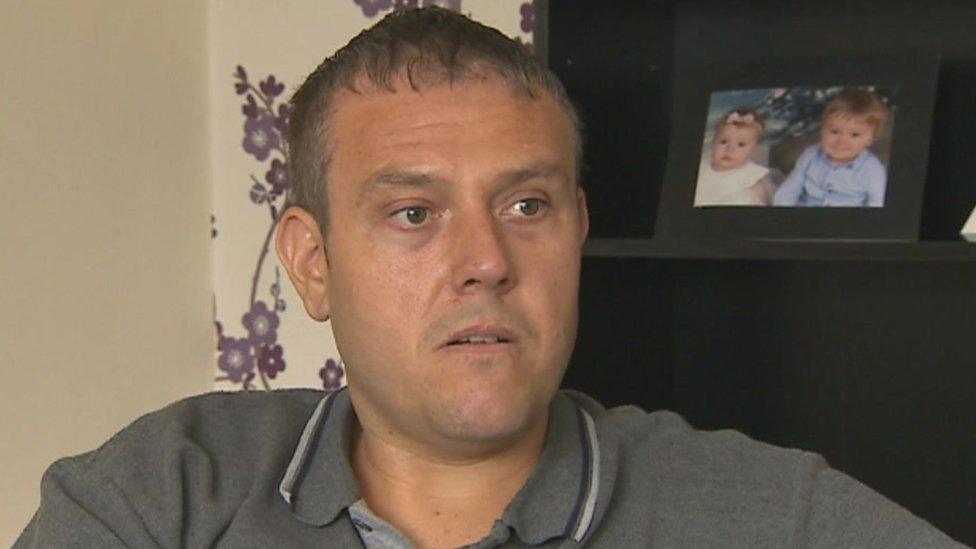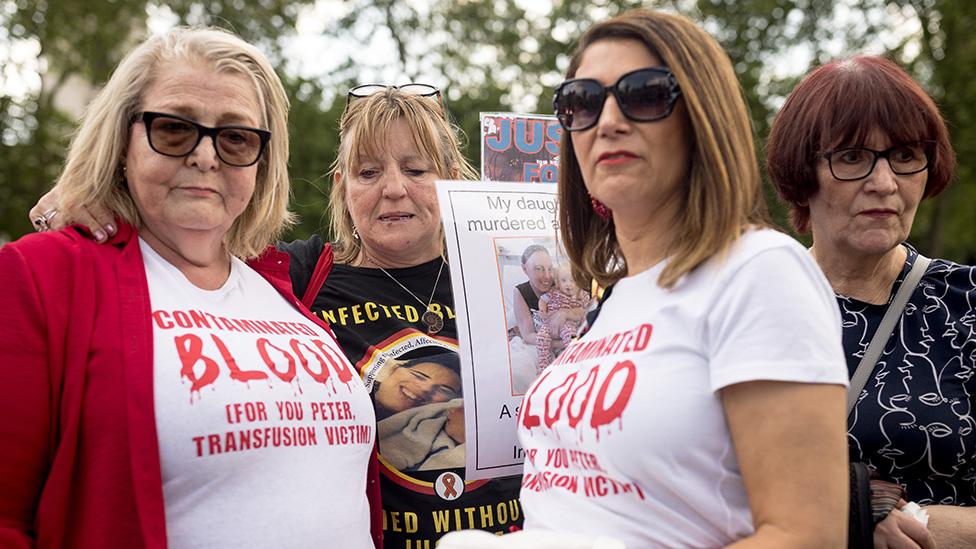Contaminated blood scandal: Welsh frustration at payments wait
- Published
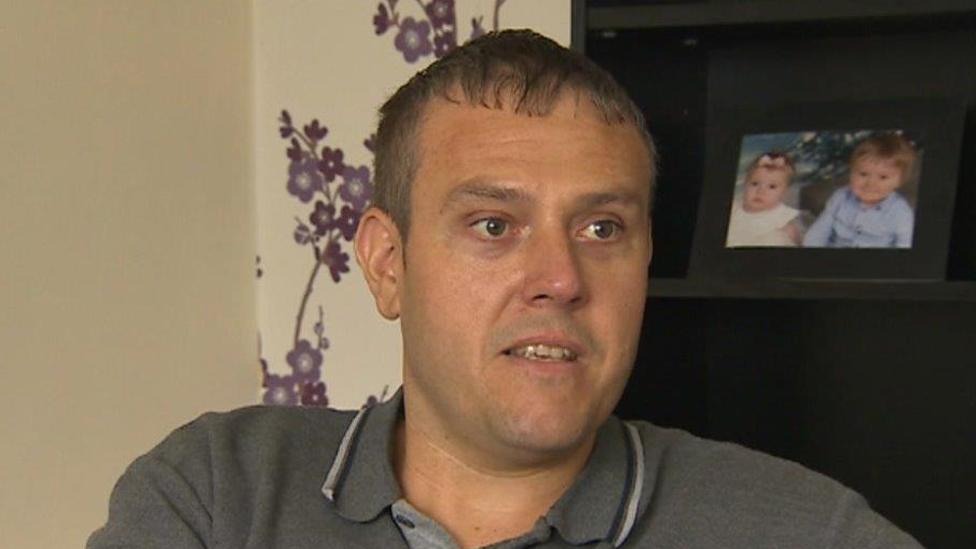
Kirk Ellis contracted hepatitis C as a child
Welsh victims of the contaminated blood scandal are being used as "political footballs", a help group has said.
Charity Haemophilia Wales said it was concerned victims were dying without getting the financial support they deserved due to differences in how much money is paid out across the UK.
Payments to victims in England were increased this year with the inquiry judge calling for parity elsewhere.
Wales's health minister has blamed the hold-up on the UK election.
In July, Vaughan Gething said he wanted the issue resolved quickly but no changes have yet been made to the payments in Wales, which are the responsibility of the Welsh Government
According to Haemophilia Wales, that leaves Welsh victims about £10,000 a year worse off compared with their English counterparts.
The Welsh Government said it was working with the other UK nations towards financial parity and support.
Up to 30,000 people were infected with contaminated blood and blood products in the 1970s and 80s.
'I worry that I might not be here is six months or a year's time'
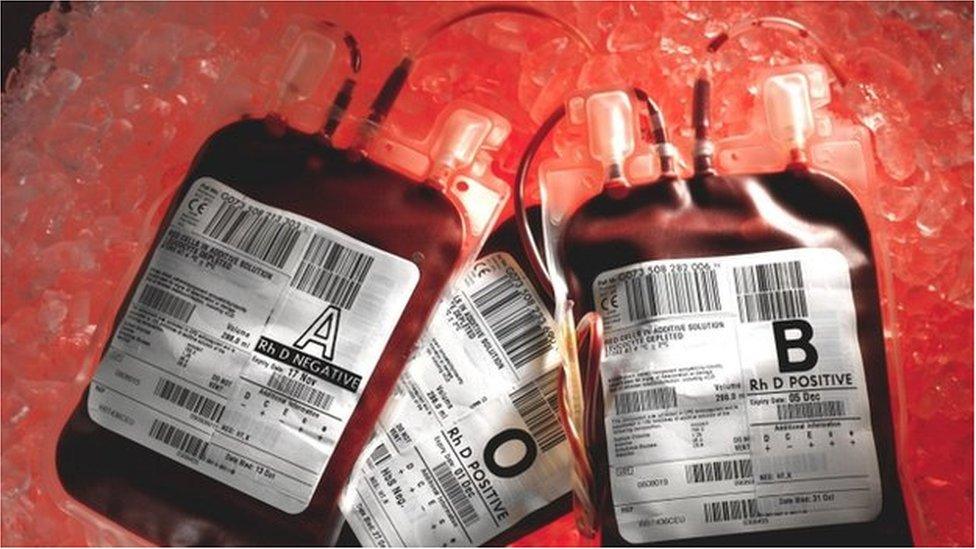
More than six months after first speaking to BBC Wales about the issue, Kirk Ellis, 38, from Caerphilly, said he was frustrated he is still thousands of pounds worse off.
"Personally I don't' think they're bothered about us," he said.
"To me I feel like they've just shrugged us off. I just feel like we're discriminated against."
Mr Ellis receives £18,500 a year after he contracted hepatitis C when he was given infected blood as a child.
Engaged to be married and with a three-year-old son, Mr Ellis stressed the importance of including widows in the Welsh scheme - as is the case in Scotland.
"I worry that I might not be here is six months or a year's time. I'm trying to save money so that I know that there's some sort of safety net there for them but, on the payments we're getting, it's just not high enough.
"I just feel I can't give my partner and my son any security. That's what really hurts is I feel like I'm letting them down."
More about the blood scandal in Wales
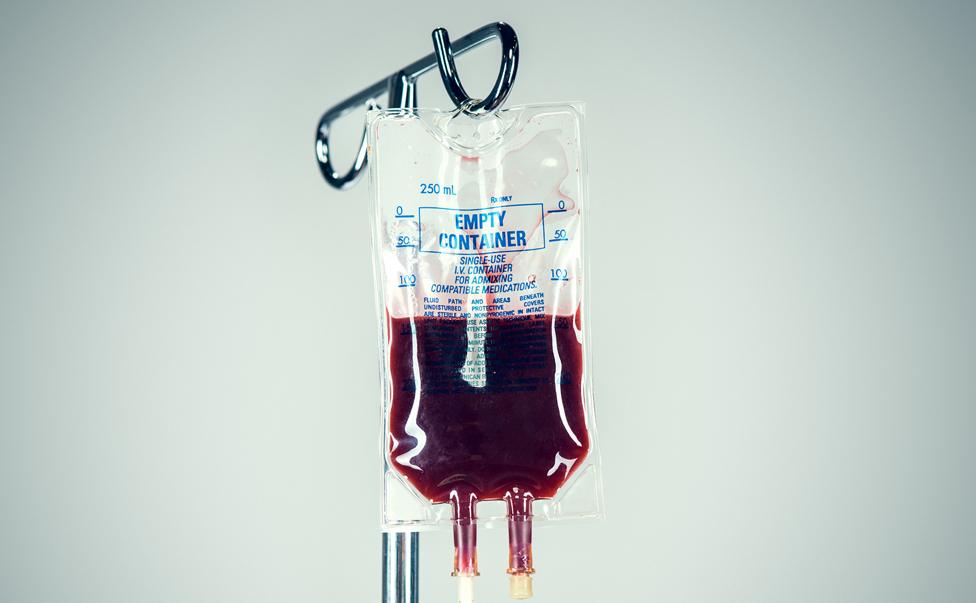
Haemophilia Wales says families are being pushed "from pillar to post"
A public inquiry into the scandal is currently looking at why thousands of people with haemophilia were infected with hepatitis C or HIV in the 1970s and 1980s.
At least 300 people in Wales are known to have been infected, but this does not include others who have died or may not have known they were infected.
Even though Haemophilia Wales chairman Lynne Kelly says "ultimately the fault is with the UK government", she believes the Welsh Government should do more to help victims and their families.
"Welsh Government didn't exist at the time. But we have a Welsh Government in Wales and we're Welsh citizens and we deserved to be looked after," she said.
"So that is why we're looking to Welsh Government, but unfortunately we're just being used as a political football, we're being pushed from pillar to post with this.
"We know there's only been one meeting between Welsh Government ministers, the devolved administrations and the Cabinet Office, but nothing has happened. There's been no progress and people are dying."
Haemophilia Wales is also campaigning to secure payments for widows who do not currently receive any payments in England in Wales.
"There are only 35 widows in Wales, and Justice Langstaff, who chaired the public inquiry, has asked that payments be levelled up across the UK for the infected and the affected people."
Infected blood was "another death sentence"
What is the Welsh Government response?
The Welsh Government said the announcement made on 30 April by the then prime minister, was "particularly unhelpful" and referred only to payments made to those beneficiaries of the English Infected Blood Scheme (EIBSS).
Deputy Health Minister Julie Morgan met UK health ministers on 10 July and all four nations have agreed to work towards greater parity in support, as an interim step, before any recommendations in the Infected Blood Inquiry's final report.
Health Minister Vaughan Gething said: "Discussions have been ongoing both at ministerial and official level to seek the additional funding necessary to match the English payments announced earlier this year.
"Unfortunately, due to the UK elections, the work on financial parity has been halted and will be picked up again now a new government at Westminster has been formed and the minister responsible for this policy area has been identified.
"Before any decision is made on the way forward in relation to any future scheme, those affected will be kept informed as plans are developed.
"I remain committed to ensuring that those infected and/or affected get their voice heard at the Infected Blood Inquiry and that they receive the answers they deserve."
- Published22 July 2019
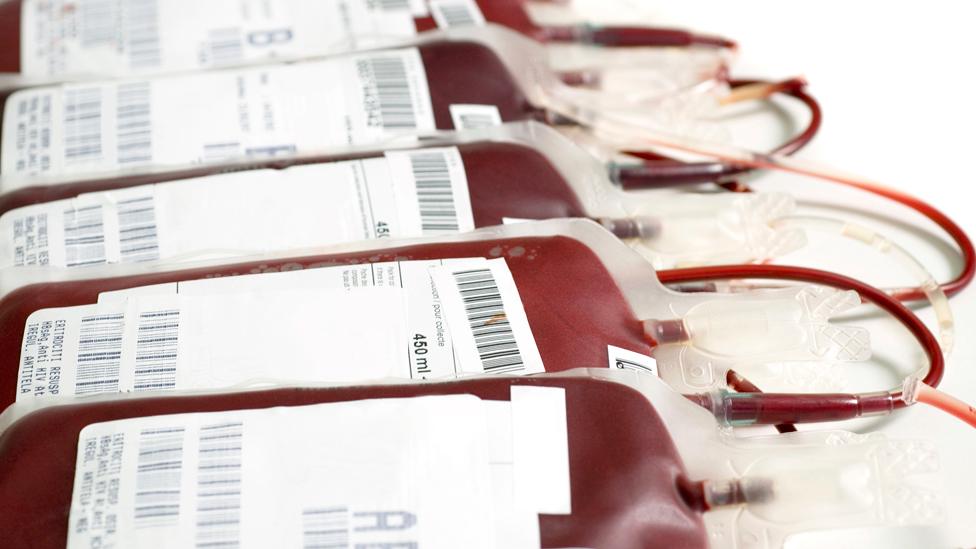
- Published24 July 2019
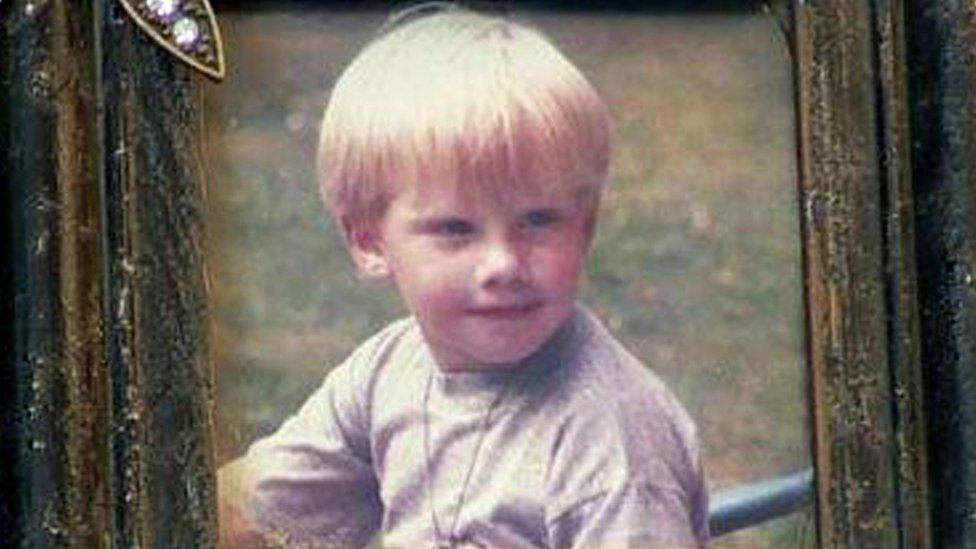
- Published25 July 2019
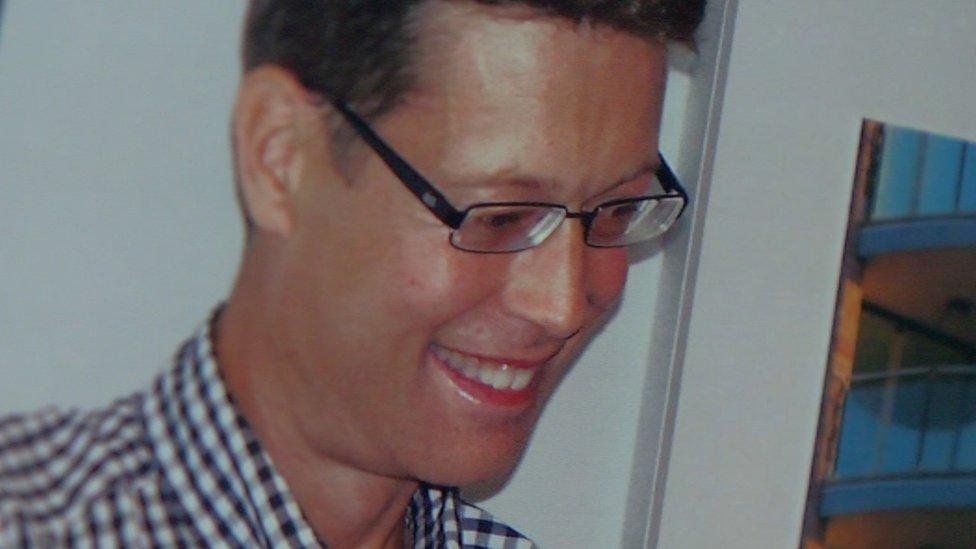
- Published26 July 2019
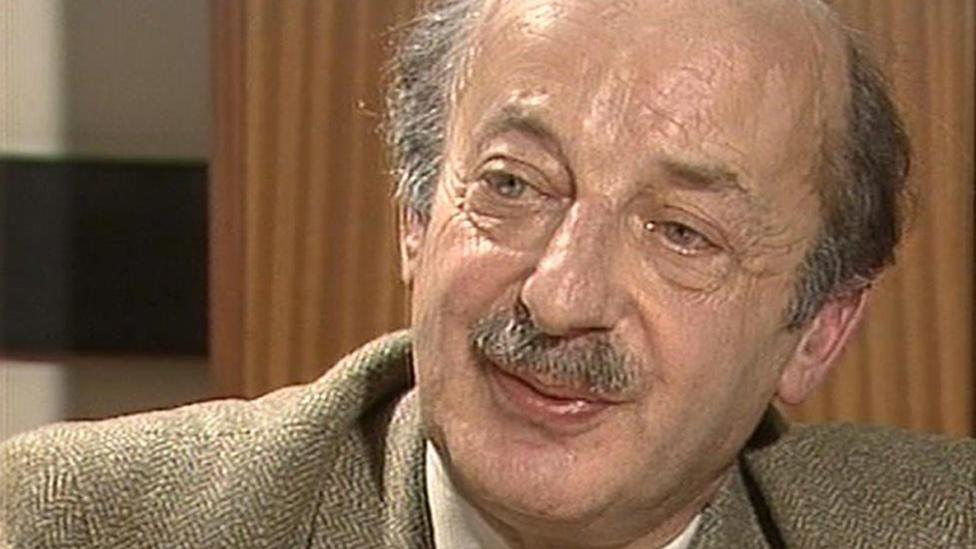
- Published21 May 2019
